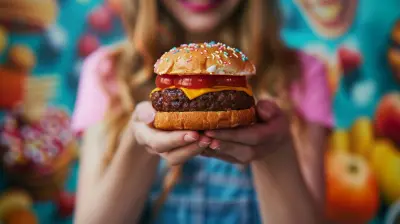Intermittent Fasting: A Natural Approach to Lowering Cholesterol
14 August 2025
Let’s be real—keeping our cholesterol levels in check isn’t always easy. Between family dinners, fast food cravings, and that sneaky late-night snack, it can feel like a losing battle. But what if I told you there’s a way to lower cholesterol that doesn’t rely on medication or extreme diets? Yep, I’m talking about intermittent fasting.
You might’ve heard of it already. It's buzzed about in wellness circles and splashed across social media. But here’s the thing—intermittent fasting (or IF, for short) isn’t just another health fad. When done right, it can naturally lower your cholesterol, boost your energy, and even help you feel more in tune with your body.
Let’s break it all down—what intermittent fasting is, how it affects your cholesterol levels, and how you can get started safely and effectively.
What Exactly Is Intermittent Fasting?
Alright, let’s start with the basics. Intermittent fasting isn’t a diet—it’s a pattern of eating. Think of it as timing your meals to give your body a break rather than constantly feeding it. You cycle between periods of eating and fasting. That’s it.There are several ways you can do this:
- The 16/8 Method: You fast for 16 hours and eat during an 8-hour window (for example, noon to 8 PM).
- The 5:2 Diet: You eat normally for five days of the week, then significantly reduce your calories (around 500-600) for two non-consecutive days.
- Eat-Stop-Eat: You fast for 24 hours once or twice a week.
It sounds intense, but don’t worry. Once your body adjusts, it becomes second nature. The cool part? You don’t have to count calories or give up the foods you love. It’s more about when you eat, not what you eat.
Why Does Cholesterol Even Matter?
Before we dive into how IF helps lower cholesterol, let’s take a quick refresher on what cholesterol actually is.Cholesterol is a waxy substance your body needs to build cells and produce hormones. So, it isn’t all bad. The problem starts when you have too much of the wrong kind—LDL (low-density lipoprotein), often dubbed "bad cholesterol."
Too much LDL can lead to plaque buildup in your arteries, increasing your risk of heart disease, stroke, and all sorts of unwanted complications.
On the flip side, HDL (high-density lipoprotein) is "good cholesterol." It helps remove LDL from your bloodstream and keeps things running smoothly.
Balancing these two is key. And that’s where intermittent fasting steps in.
How Intermittent Fasting Affects Your Cholesterol
You’re probably wondering, “Okay, but how does just not eating for a few hours make any difference to my heart?”Great question. When you fast, your body doesn’t have access to a constant flow of glucose (sugar) from food. So, it turns to fat for energy instead. This process, called lipolysis, burns fat stores and reduces triglyceride levels—those are fats in your blood that can bump up your cholesterol if they’re too high.
Here’s how intermittent fasting can naturally lower cholesterol levels:
1. Boosts Fat Burning
When you give your digestive system a break, your body shifts from storing fat to burning it. This not only helps with weight loss, which is already a major plus for heart health, but also reduces LDL cholesterol and triglycerides.2. Improves Insulin Sensitivity
Insulin plays a major role in fat storage. Poor insulin sensitivity (often a precursor to Type 2 diabetes) can lead to higher levels of LDL and lower HDL. Fasting improves insulin sensitivity, which in turn helps regulate your lipid profile.3. Reduces Inflammation
Chronic inflammation is like a silent fire inside your body, damaging your blood vessels and paving the way for heart disease. Studies show intermittent fasting can reduce markers of inflammation, which may directly or indirectly affect your cholesterol levels.4. Elevates Good Cholesterol (HDL)
Interestingly, intermittent fasting doesn’t only lower the bad stuff. It can give your HDL levels a healthy boost too. And more HDL = better protection against heart disease. Win-win.
What the Science Says
You don’t have to take just my word for it—there’s solid research backing these benefits.One study published in the journal Cell Metabolism found that participants who followed a time-restricted eating plan (similar to the 16/8 method) showed significant reductions in LDL cholesterol and triglycerides after 12 weeks. Another review in Nutrition Reviews found that intermittent fasting positively impacted lipid levels across various studies.
And here’s the kicker—most of these benefits were observed without any major changes to the participants’ dietary choices, aside from meal timing. Wild, right?
Benefits Beyond Cholesterol
Lowering cholesterol is just one piece of the puzzle. Intermittent fasting comes with a bunch of other perks too:- Weight Loss: Fewer eating windows = fewer calories consumed (usually).
- Enhanced Brain Function: Fasting may increase the production of brain-derived neurotrophic factor (BDNF), which supports brain health.
- Better Digestion: Giving your gut a break can lead to less bloating and more efficient digestion.
- Improved Sleep: Many people report better sleep quality after adopting a fasting schedule.
Is Intermittent Fasting Safe for Everyone?
Here’s where we tread a little cautiously.While intermittent fasting can work wonders, it’s not a one-size-fits-all solution. People with the following conditions should talk to a healthcare provider before trying it:
- Diabetes or blood sugar fluctuations
- Eating disorders or a history of disordered eating
- Pregnancy or breastfeeding
- Chronic illnesses that require regular meals
Also, if you're taking medications for cholesterol or other health issues, throwing IF into the mix without professional guidance may do more harm than good.
Always listen to your body—and your doctor. Fasting isn't about pushing through hunger or depriving yourself; it’s about aligning your eating patterns in a way that supports health and healing.
Tips for Getting Started (Without Going Hangry)
Starting intermittent fasting can feel weird at first. Your brain might scream, “Where’s breakfast??” But trust me—your body adapts pretty quickly.Here’s how to ease into it:
1. Start Slow
Try a 12-hour fast first (e.g., 8 PM to 8 AM). Once that feels comfortable, stretch it out to 14 or 16 hours.2. Stay Hydrated
Water, herbal teas, and black coffee can carry you through your fasting window. They also help curb hunger pangs.3. Prioritize Nutrition
When you eat, eat well. Load up on fiber, lean proteins, healthy fats, and colorful fruits and veggies. Don’t undo your hard work with greasy takeout every day.4. Be Consistent
IF works best when it becomes part of your routine. Choose a method that fits your lifestyle and stick with it.5. Be Gentle with Yourself
Some days you’ll make it through 16 hours like a champ. Other days, you’ll break the fast early—and that’s okay. Progress, not perfection.Real Talk: What IF Isn't
Let’s clear the air. Intermittent fasting is not a magic fix. It won’t wipe out years of unhealthy habits overnight. It’s not an excuse to binge on junk food during your eating window or completely ignore physical activity.Think of it like a tool. A really effective, natural tool that works best when paired with other positive lifestyle choices—like moving your body, managing stress, and getting enough sleep.
Final Thoughts
At the end of the day, intermittent fasting offers a simple, drug-free way to support heart health and lower cholesterol naturally. It’s not about starving yourself. It’s about giving your body the time it needs to rest, balance hormones, and burn fat more efficiently.If you're looking for a way to get your cholesterol in check without diving into extreme diets or popping pills, intermittent fasting might just be your new best friend. Just remember to start slow, stay hydrated, eat mindfully, and always check in with your healthcare provider—especially if you’ve got a medical condition.
Oh, and be patient. Good things—like healthy cholesterol levels—take time. But imagine the payoff: a healthier heart, more energy, and a lifestyle that finally works for you, not against you.
all images in this post were generated using AI tools
Category:
Intermittent FastingAuthor:

Eileen Wood
Discussion
rate this article
1 comments
Christopher McIntosh
Oh, fantastic! Because who wouldn’t want to starve for hours to lower cholesterol? Sign me up for the "feast-and-famine" diet—I’ll just keep dreaming about snacks!
September 5, 2025 at 4:04 PM

Eileen Wood
I understand your concern! Intermittent fasting isn’t about deprivation; it’s about timing meals for better health. Many find that it helps them enjoy food more mindfully.


